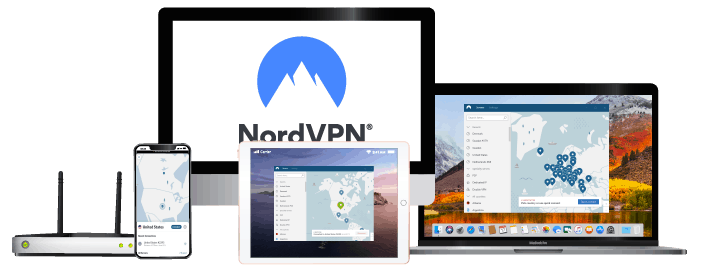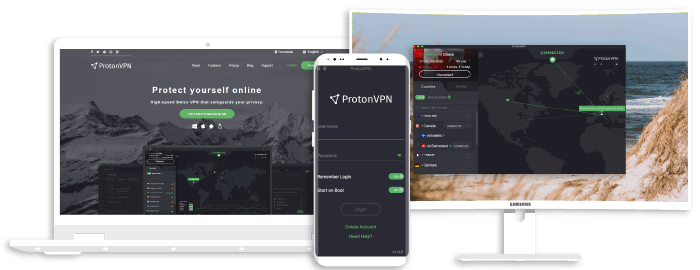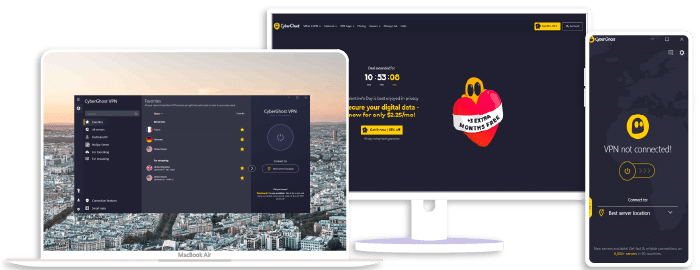Remote Access vs. Site-to-Site VPN
When it comes to maintaining secure connections over the internet, two options commonly stand out: remote access VPNs and site-to-site VPNs. Both serve crucial roles in today’s digital landscape, but they’re certainly not interchangeable. Understanding their differences can help you choose the right solution for your specific needs.
A remote access VPN allows individual users to establish secure connections with a remote computer network. Those users can access the network as if they’re directly connected to the network’s servers. For example, using services like ExpressVPN, I could securely connect to my office network from my home computer or even while traveling.
On the other hand, site-to-site VPNs are more like an invisible Ethernet cable connecting two networks across the globe. They allow multiple networks in different locations (like branch offices) to establish secure connections with each other over a public network such as the internet. So if I were using solutions such as NordVPN or Surfshark at my company’s headquarters, those networks would become seamlessly integrated with our remote offices’ networks— almost as if they’re directly wired together.
To put it simply, think of remote access VPNs as solutions for individuals on-the-go and site-to-site VPNs as bridges that bring far-flung business networks closer together.
ExpressVPN
Overall score: 9.8
- 3,200 servers across 105 countries
- Works with streaming platforms
- AES 256-bit encryption
- Supports private protocol, Lightway
- Money-back guarantee
30-day money-back guarantee
NordVPN
Overall score: 9.6
- 8,700+ servers available in 129 countries
- Connect up to 10 devices simultaneously
- Great security features
- Verified no-logs policy
- Unblocks streaming platforms
30-day money-back guarantee
Surfshark
Overall score: 9.5
- 4,500+ servers in 100+ countries
- Allows unlimited simultaneous connections
- Integrates stealth mode
- Multihop feature available
- Webcam protection from unauthorized apps
30-day money-back guarantee
Proton VPN
Overall score: 9.4
- 17,250+ servers in 125 countries
- Free version available
- Strong security features
- Reliable no-logs policy
- Allows Perfect Forward Secrecy
30-Day Money-Back Guarantee
CyberGhost
Overall score: 9
- 9,300+ reliable servers in 100 countries
- 45-day money-back guarantee
- Strict no-log policy
- Tough security features
45-Day Money-Back Guarantee
Understanding Remote Access VPN
When I think about remote access VPN, a couple of key characteristics spring to mind. It’s an ideal solution for individuals or employees needing secure access to their organization’s network from different locations. Using software like ExpressVPN, NordVPN, or Surfshark, they can connect and navigate the internet securely.
Let me explain how it works. When you’re using remote access VPN, what actually happens is that your device creates a secure tunnel to the VPN server. Your online traffic then passes through this encrypted tunnel, keeping your data private from prying eyes.
There are three essential components in a remote access VPN:
- The Network Access Server (NAS), also known as the media gateway.
- Client software
- User credentials
When you use remote access VPN services such as ExpressVPN or NordVPN, they act as the NAS or media gateway. You install client software on your device, which allows you to establish and manage the connection. Meanwhile, user credentials ensure only authorized users gain access.
In terms of security features offered by these services, here are some noteworthy ones:
- Encryption: This ensures that even if someone intercepts your data stream, they won’t be able to understand it.
- IP masking: By making it appear as if your traffic originates from a different location, IP masking helps keep your identity anonymous online.
- Kill switch: If there’s an unexpected drop in VPN connection with either ExpressVPN or Surfshark (or any other service), this feature disconnects you from the internet, ensuring no sensitive data leaks out.
Remote access VPN offers flexibility and enhanced security for users who need consistent connectivity while moving around. However, bear in mind that although it provides robust protection for individual devices against potential cyber threats when browsing public networks, it can’t protect all devices on a network like site-to-site VPN does, but we’ll get onto that later!
Getting to Know Site-to-Site VPN
Let’s dive into the world of site-to-site Virtual Private Networks (VPNs), where ExpressVPN, NordVPN, and Surfshark are some big players making waves.
Understanding what a site-to-site VPN is, requires understanding its purpose. It’s designed for businesses with multiple locations that need secure, direct access to their network resources. The beauty of this technology? It creates an encrypted tunnel between these different sites over the internet.
Picture it like building a secret underground tunnel between two houses; except in this case, your ‘houses’ could be on opposite sides of the globe! This type of VPN lets data flow securely from one LAN (Local Area Network) to another – just as if they were connected by a private line.
Now, let’s talk about how it works. A device known as a VPN Gateway is installed at each location. These gateways handle all VPN traffic and provide encryption and decryption services. They ensure that only authorized users can send data across the network.
Here are a few key features that make site-to-site VPNs stand out:
- Security: Strong encryption protocols keep your data safe from interception.
- Efficiency: Once set up, your network traffic flows smoothly between locations.
- Flexibility: Whether you’re connecting two offices or twenty, you can scale up easily.
- Cost-effective: Say goodbye to expensive leased lines!
Amongst popular providers, ExpressVPN, NordVPN, and Surfshark offer robust solutions for businesses seeking reliable site-to-site connections. Each has unique selling points – ExpressVPN is renowned for its speed, NordVPN scores high on security measures, while Surfshark offers great value with unlimited connections.
For those who prioritize privacy above all else, you’ll appreciate how these services hide not just your data, but also the IP addresses involved in communication. That means nobody outside can determine who is talking to whom!
In essence, if you’ve got multiple locations needing secure connectivity without breaking the bank – a site-to-site VPN might just be your ticket! Remember though – like any technology solution – it’s essential to choose one suited best for your business needs and growth plans.
Differences Between Remote Access and Site-to-Site VPN
Diving straight into the heart of our discussion, let’s start by understanding that both remote access VPNs and site-to-site VPNs are crucial tools for ensuring secure internet connections. However, they differ in their usage scenarios, deployment complexity, and scalability.
Firstly, a remote access VPN primarily caters to individual users or employees who need secure access to their organization’s network from distant locations. Think of it as your personal tunnel to your office network – safe, private, and tailored just for you. I often use ExpressVPN for such needs due to its exceptional speed and security features.
Contrarily, a site-to-site VPN is more like a broad highway connecting two separate networks at different sites. It ensures seamless communication between these networks as if they were on the same local area network (LAN). NordVPN is my go-to choice when dealing with site-to-site setups because of its robust performance with multiple connections.
The complexity involved in deployment varies significantly between the two types. Setting up a remote access VPN generally involves installing client software on each user’s device – hence, it could be deemed easier if we’re looking at only one or two installations. SurfShark is an excellent option here due to its user-friendly interface.
On the flip side, setting up a site-to-site VPN can be quite complex as it requires configuring routers at both ends of the connection, usually done by IT professionals. However, once set up, it provides a steady link between entire networks without requiring additional software on individual devices.
Lastly, but importantly, is the aspect of scalability. A remote access VPN scales well with increasing number of users, since each new connection merely requires adding another user account on the server and installing client software on the device – relatively straightforward tasks!
For site-to-site VPNs, though, scaling up means adding more hardware (routers) or upgrading existing ones to handle increased traffic – certainly more demanding in terms of effort and resources!
To sum things up:
- Remote Access VPN: Best suited for individuals needing secure access to another network over the internet; I recommend ExpressVPN.
- Site-To-Site VPN: Ideal for businesses requiring continuous connectivity between separate networks; NordVPN serves this purpose effectively.
I hope this comparison was helpful! Remember that choosing between these options depends largely on your specific requirements – there’s no one-size-fits-all answer here!
Join the TechRobot Newsletter
Actionable tips on online security, the best VPNs, unblocking guides, and special offers — straight to your inbox.









